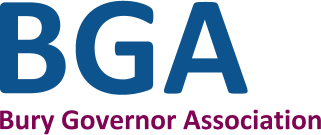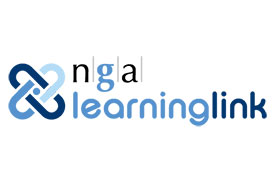The NGA published their annual survey of governors and trustees this week. The full report can be accessed on the link below:
School-Governance-Report-(WEB)-FINAL-2-9-19
- Respondents’ opinion of central education policy continues to decline. 78% of respondents had a negative view of the government’s performance in education over the past year (2018: 75%). Furthermore, at the time of asking nearly three quarters of respondents felt that the Department for Education would not make a strong case for further funding in the upcoming spending review while over half of respondents felt that the government’s vision for education did not align with that of their governing board.
- There is growing agreement as to the key issues facing schools. When respondents were asked to list the top five (out of a possible 31) challenges facing their organisation, ten key issues made up 63% of all responses, as opposed to 53% in 2018. In their asks for government, hundreds of respondents implored the government to invest more in school funding and to listen to those governing and school staff to overcome the challenges facing the sector.
- For all regions, school types and phases, school funding remains the biggest issue for governing boards. Over three quarters of respondents said that they are not confident that funding pressures can be managed without any adverse impact on the quality of education provided in their school. Of the 32% of respondents reporting that their school is drawing upon reserves, 61% said that their board expects these to run out by 2021. Additionally, a large proportion of respondents reported reducing the number of staff and spending on buildings and maintenance within the last twelve months due to financial constraints.
- Concern over the adequacy of high needs funding is growing. 78% of respondents, as opposed to 74% in 2018, said that their school(s) does not receive enough funding to meet the needs of pupils with special education needs and disabilities (SEND). While in 2018 high needs funding pressures were significantly worse for secondary schools, this year the trend exists regardless of phase, type or school.
- Staff wellbeing and workload moved up the list of concerns from third place last year to second place this year. 62% listed this within their top five issues as opposed to 37% in 2018. Half of respondents noted that the workload and/or pressure places on their lead executives had risen in the last twelve months. This may be linked to concerns about recruitment and retention which was the fourth most common concern for respondents.
- Respondents reported spending a significant amount of time on governance, with 29% spending over 30 days per year completing their duties. Nearly a quarter of governing board chairs reported that the time they dedicate to governance was somewhat or completely unmanageableand only 22% of employed respondents said the time commitment was completely manageable.
- Governing boards continue to lack diversity – particularly in terms of ethnicity and age. 93% of respondents identified as white compared to 74% of pupils in England and only 10% of respondents reported being under the age of 40.
- Respondents reported an average of 1.26 vacancies per governing board or academy committee. Based on a conservative estimate of the number of governing boards and academy committees in England, an estimated 18,000 additional school governance volunteers are needed to sustain school governance under current board sizes.
- The lines of accountability in MAT governance continue to be blurred, with the same individuals acting as trustees, academy committees and members in large proportion of MATs. This can and does negatively impact transparent decision making as well as creating governance workload issues.
- Only 57% of academy committee members felt that their voice was being listened to by MAT trustees and leaders, and less than half said that they would be happy to share their schools’ resources with the wider organisation. Furthermore, there are clear inconsistencies in what MAT trustees and academy committee members claim to have delegated responsibility for, suggesting more work is needed around schemes of delegation.
- 16% of respondents say their school has reduced pastoral support due to funding constraints, and 61% of respondents said that they do not have enough funding to support pupils from disadvantaged backgrounds. This year there has been a 3.5% decrease in the number of schools providing financial support with purchasing school uniform, but an increase in those providing foodbanks, meals outside term time and washing uniforms.
- Nine out of ten school governors and trustees supported the proposed new Ofsted inspection framework. 42% of respondents had already done work in preparation for the framework while a further 47% were planning to do work in preparation. Only one in ten said they were not planning to do, or had not done, any preparation.
- Respondents were slightly less likely to have engaged in stakeholder engagement (of any form) than in previous years – including staff, pupil and parent/carer surveys as well as engaging the school and wider community face-to-face, despite the importance of stakeholder engagement to good governance.
- Only 76% had the same clerk for the full governing board and its committees, despite virtually all respondents employing a clerk. This means that those who did not either used another individual (such as a member of staff) or did not have anyone clerking committee meetings.

